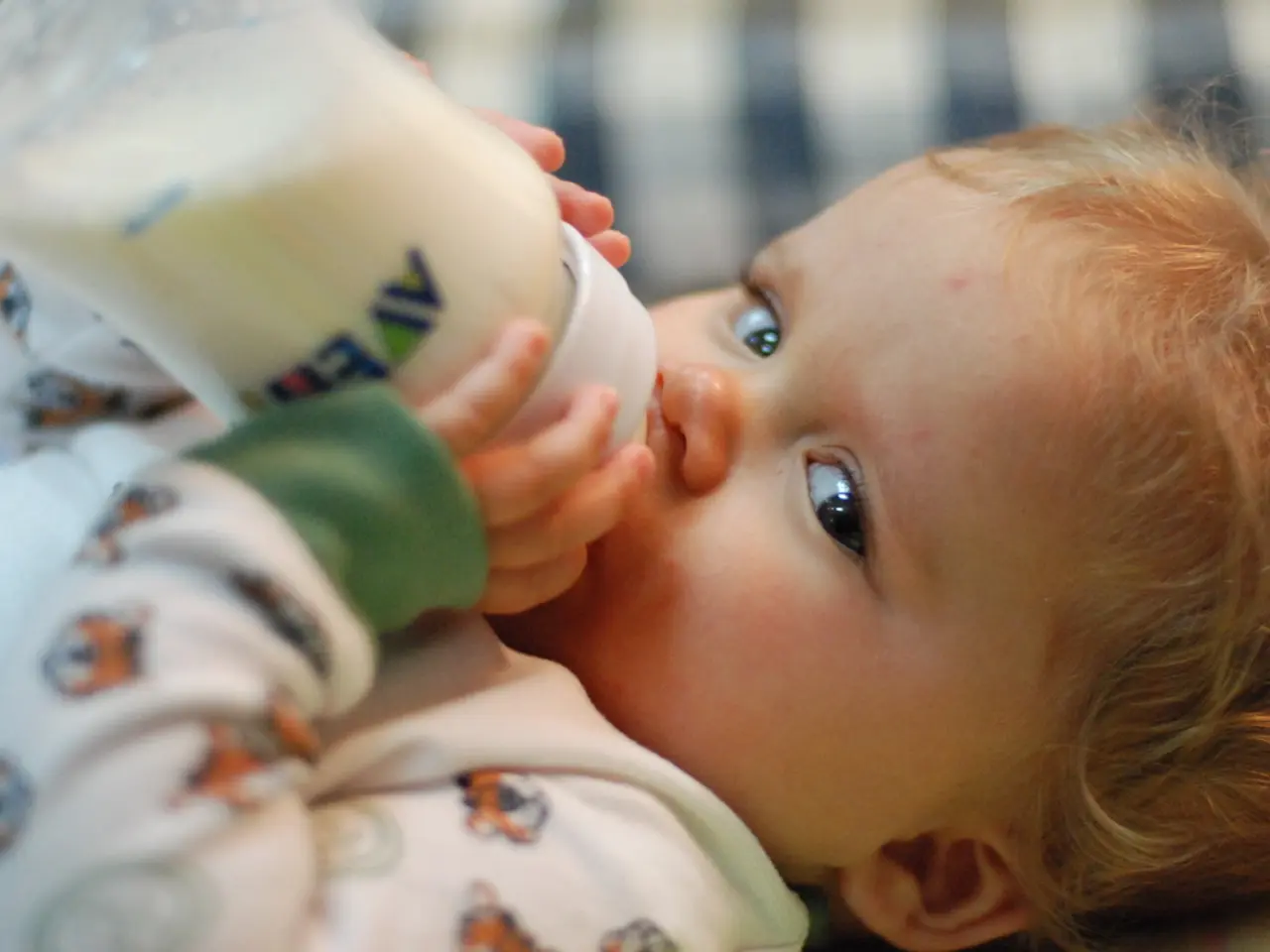Dispelling Common Misconceptions About Breastfeeding for Nigerian Parents
In Nigeria, breastfeeding is significant due to its numerous benefits for both infants and mothers. However, misconceptions surrounding breastfeeding persist, hindering its practice and potentially compromising the health of newborns.
One common myth is that breastfeeding causes breasts to sag. This belief, prevalent in Nigeria, has been scientifically debunked by health experts. Breast sagging is primarily attributed to factors such as weight fluctuations, genetics, and aging, not breastfeeding itself [3][5]. The misconception leads to the introduction of complementary foods too early, depriving infants of the exclusive breastfeeding they require for the first six months.
Another widespread myth is that breastfeeding can transmit HIV/AIDS from the mother to the baby. On the contrary, with proper guidance and medication, the risk of transmission can be significantly reduced, and breastfeeding remains the best option for HIV-positive mothers [5].
The belief that breastfeeding leads to saggy breasts and the fear of HIV transmission are not unique to Nigeria. Some Nigerian parents also believe that breastfeeding is not enough to satisfy a baby's nutritional needs after six months, and that breast milk can worsen illnesses [5].
However, breast milk is a complete and perfectly balanced source of nutrition for newborns, containing the ideal mix of carbohydrates, proteins, and fats required for a baby's growth and development [4]. Breast milk is rich in antibodies, enzymes, and white blood cells that help protect the baby from infections and boost their immune system [1]. Moreover, breast milk continues to provide essential nutrients and immunological benefits even as the baby starts consuming solid foods [2].
Breastfeeding holds immense importance in Nigeria, but overcoming these myths requires continued public education and support for breastfeeding mothers. The Nigerian public health community actively counters these misconceptions, emphasizing that breastmilk is the optimal nutrition for infants and debunking common myths [3][5].
Reliable sources for more information about these myths in Nigeria and their scientific debunking include Nigerian news outlets and health feature articles discussing breastfeeding barriers and myths in local contexts, public health statements and reports from Nigerian experts and organizations, and national demographic and health surveys [1][3][5].
It is crucial to debunk these myths and educate parents about the countless benefits of breastfeeding. Overcoming these misconceptions will not only promote optimal infant nutrition but also contribute to the overall health and well-being of mothers and children in Nigeria.
References:
- The Guardian Nigeria
- Punch Newspapers
- LightRay Media
- Statements and reports from Nigerian experts and organizations
- National demographic and health surveys (NDHS) and multinational reports like the UNICEF Multiple Indicator Cluster Survey
- Misconceptions about breastfeeding persist in Nigeria, one of which is that it leads to breast sagging, a belief that has been disproven by health experts.
- Health education is essential for debunking these myths and supporting breastfeeding mothers in Nigeria.
- Breastfeeding is significant due to its numerous benefits for both infants and mothers in Nigeria, including providing a complete and balanced source of nutrition.
- Breast milk is rich in antibodies, enzymes, and white blood cells that help protect babies from infections and boost their immune system.
- Misinformation surrounding breastfeeding can compromise the health of newborns, such as the belief that breastfeeding can transmit HIV/AIDS from the mother to the baby, which has been proven false.
- Parents in Nigeria should be educated about the countless benefits of breastfeeding, not only for optimal infant nutrition but also for the overall health and well-being of mothers and children.
- Misconceptions about breastfeeding are not unique to Nigeria, and some parents believe that breast milk cannot satisfy a baby's nutritional needs after six months or that it can worsen illnesses.
- Reliable sources for information about breastfeeding myths in Nigeria include Nigerian news outlets, health feature articles, public health statements and reports from Nigerian experts and organizations, and national demographic and health surveys.
- Mental health, women's health, and children's nutrition are all interconnected with the practice of breastfeeding, making it an essential aspect of health-and-wellness in Nigeria and other countries.




